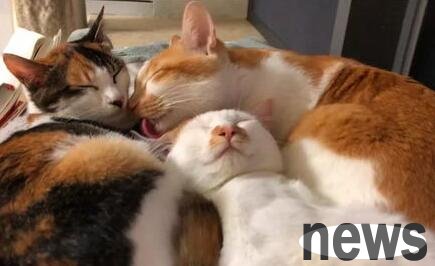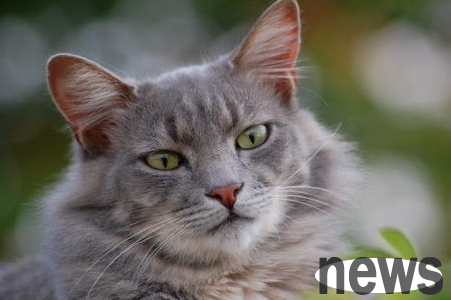After preparing the items your cat needs and choosing a good cat, you are not in a hurry to take the cat home. First, you need to send the cat to the hospital for examination. You will need to be vaccinated in a few days before you can rest assured....
After preparing the items your cat needs and choosing a good cat, you are not in a hurry to take the cat home. First, you need to send the cat to the hospital for examination. You will need to be vaccinated in a few days before you can rest assured. Take the cat home safely. So what vaccine does cats need to be injected?
Cat triad is mainly used to prevent cat infectious diseases. The cat triad is a triple vaccine, which can prevent three viral infections, including cat plague, cat infectious rhintracheitis and cat calicivirus.

Common cat triple vaccines include Interway in the Netherlands, Vic in France, Pfizer in the United States and Fudo in the United States. Vaccines are classified into attenuated vaccines and inactivated vaccines according to their nature. Attenuated vaccines are also called live attenuated vaccines. This vaccine has good immunity and is vaccinated at a small number of times, but it may be infected with bacteria and storage requirements are relatively strict. Intervita, the Netherlands, is an attenuated vaccine. The inactivated vaccine is safer but the immune effect lasts for a short time, and it requires repeated vaccination, so the immune effect is also average. The Fudao vaccine in the United States is an inactivated vaccine. In general, attenuated vaccines are better than inactivated vaccines, but in terms of safety, inactivated vaccines are better, especially for kittens and sick cats. Inactivated vaccines should be chosen when vaccinating. Parents can choose which vaccine to get based on their baby's physical condition, but we recommend that healthy cats should choose an attenuated vaccine.
Things to note when injecting cat triplets:
1. Physical examination for a completely healthy cat with no diarrhea and normal body temperature. Cats with good mental state
2. Pregnant cats are prohibited from using attenuated vaccines (to avoid miscarriage)
3. Use caution with breastfeeding cats
4. Use caution with weak cats (including newly purchased new cats and newly adopted stray cats, after two weeks of isolation and observation)
5. Cats who are determined to be in contact with cats with infectious diseases but have not developed the disease should be isolated and observed within two weeks. If they are with cats with cats with cats with cats Cats who have been exposed but have not been vaccinated must be given urgent serum injection (vaccination is allowed after two weeks of injecting serum)
6. If a cat experiences allergic reactions after vaccination (face edema, shortness of breath, itching, etc.) after vaccination, it should be timely desensitized to avoid contact with sick cats with infectious diseases during the vaccination period (usually, it will not develop immunity after seven days of vaccination)
Immunization procedure for cats:

1. The basic immunization of kittens is vaccinated at the first time at nine to twelve weeks of age, and the second and first vaccination should be separated by three to four weeks, and once a year afterwards.
2. Adult cats need to be vaccinated twice before. If they have been vaccinated before, they only need to be strengthened once a year.
3. Regarding the immune procedure of stray cats: In epidemic areas where infectious diseases are more prevalent and in winter and spring, attention must be paid to the isolation and observation of stray cats (if conditions, immunoglobulin or serum can be injected). After two weeks, you can only get vaccinated if you are healthy and you can get a vaccine after seven days.
4. Try to avoid sterilization and vaccination at the same time. It is best to get vaccinated two weeks before the operation. If you are not in time for vaccination, you can inject serum or immunoglobulin during the operation.